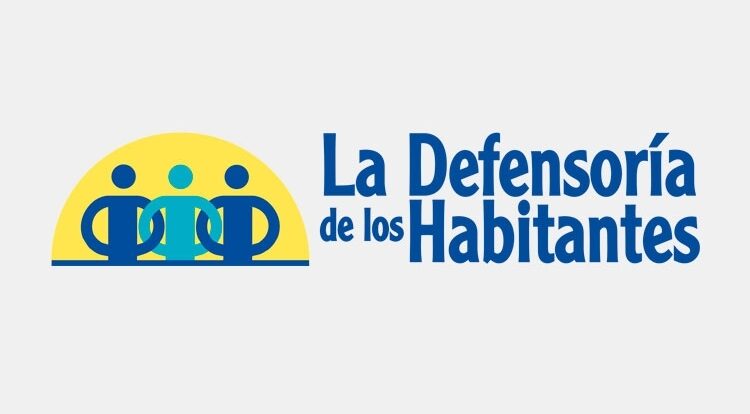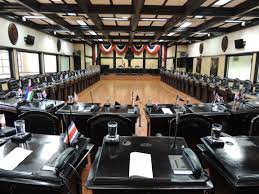La Defensoría de los Habitantes (Ombudsman) Costa Rica

The Defensoría de los Habitantes (Ombudsman) defends the rights of the inhabitants of Costa Rica at the public level.
An organ of the Legislative Power
The Ombudsman’s Office is an oversight body that is part of the Legislative Branch. It is accountable annually to the Legislative Assembly but has administrative, functional and judgmental independence. Its mission is to protect the rights of the inhabitants of Costa Rica against actions of the public sector. It does not intervene in private matters.
The head of this body is elected by the majority of the deputies present at the time of the vote. This takes place once every four years and may be reelected for one more term.
What is its objective?
According to the law, the objective of the Ombudsman’s Office is “to ensure that the activities of the public sector are in accordance with the legal system and morality, so that the rights and interests of the inhabitants are always protected”. The mission of the Ombudsman’s Office is to protect the inhabitants of Costa Rica against the actions and omissions of the Public Sector, through a control of legality, justice and ethics by means of prevention, defense, promotion and dissemination of their rights and interests.
These are some of the powers of the Ombudsman’s Office as dictated by law:
- It may initiate, ex officio or at the request of a party, investigations to clarify material actions or omissions in the administrative activity of the public sector.
- It may inspect public offices to receive from them all documentation and information necessary for the performance of its duties.
- Any public official without immunity may be summoned to appear. In case of failure to appear, the Public Force will be used.
Finally, the pronouncements issued by the Ombudsman’s Office do not have legal weight. However, the weight of the institution is sufficiently high to be able to effectively defend the inhabitants.

Historical background of the Defensoría (Ombudsman’s Office)
The figure of the Ombudsman originated in Sweden. From the beginning, the mission of this ombudsman was to exercise strict vigilance to ensure compliance with existing laws, as well as to ensure that public officials complied with their obligations.
Originally, the Ombudsman was appointed directly by the king. However, as a result of a series of revolts in Sweden in 1809, a new Constitution was adopted, which included in Article 96 the appointment of the Ombudsman by Parliament.
The figure of the Ombudsman entered the Finnish regime. Then, in the 20th century, it spread to the rest of the Nordic countries. It was then exported to New Zealand and the Anglo-Saxon countries; later it spread to France and Spain and more recently to Costa Rica. In each case it was adapted to the specific requirements of the social, political and legal system of the countries that adopted it.
Controversial mandate of the current head of the Ombudsman’s Office
This position is currently held by Catalina Crespo, who will not run for reelection after having been the focus of criticism from civil society and administrative actors who claim that her management has been among the worst in the history of the institution.
Crespo was appointed in December 2018 by the Assembly for a four-year term. During her tenure, the hierarch came out of an impeachment process in Congress, to which she was subjected in 2020 for apparent irregular actions. She retained the position with 36 votes in favor and 12 against.
The deputies investigated her, among other things, for the loss of the audio of an interview with the then president of the Republic, Carlos Alvarado, about the Presidential Data Analysis Unit. In addition, she was criticized for not having included the former Minister of the Presidency, Rodolfo Piza, in the investigation.
During her tenure, the ombudswoman also broke an agreement with an organization in charge of the fight against HIV and closed the legal clinic that provided free legal advice to low-income people in the Ombudsperson’s Office, generating discomfort in the civil and administrative society.
On the other hand, Ms. Crespo opened the door of the institution to anti-vaccine groups, which promote claims of chip implantation or mass sterilization. This contributed even more to the already battered image of the institution.
In view of the questioning of Ms. Crespo by the Legislative Assembly, the Ibero-American Federation of Ombudsmen expressed its “deep concern” over the situation of the Costa Rican Ombudsman, Catalina Crespo, who is facing a removal hearing called by the Legislative Assembly, and in this regard requested the Costa Rican authorities to “guarantee and respect compliance with the principles of independence and autonomy in the operation” of this human rights organization.
Author: M.Barrantes for Sensorial Sunsets
References
http://www.portalfio.org/noticias/costa-rica-fio-situacion-defensoria/
Navigate articles




